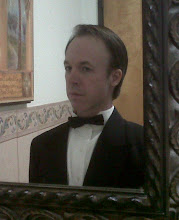Screenplays need theme, structure, character, plot, etc. But they can also benefit from something else that is rarely talked about in screenwriting books.
A conceit.
In literary theory, a “conceit” is an extended metaphor with a complex logic that governs a poem or story.
The 17th century metaphysical poets, like John Donne and Sir Philip Sydney, were especially fond of witty conceits.
One of the best known examples is John Donne’s poem, “The Flea.” A flea bites the narrator and his lover, uniting their blood, so that three lives co-exist in one life, that of the flea. The entire poem is built on this simple, if bizarre, conceit. The two lovers are “married” in the flea, and when the woman kills the flea, it is a kind of murder-suicide.
Sir Philip Sidney’s poem, “My true-love hath my heart and I have his,” takes this common sentiment literally.
Note that both of these poems have a horrific premise.
Screenplays, too, can have a literary conceit.
For example, I built a conceit into my horror script, Red Wedding.
The logline is:
“A serial killer crashes a wedding at a remote lakeside resort.”
What is the conceit?
“Wedding jitters become wedding terrors.”
I structured my film, and built most of my strongest scenes, around this extended metaphor, until Red Wedding became a hyperbole of all wedding disasters, with the bride’s anxieties writ large — and in blood.
Brides are naturally anxious about their weddings. Their entire lives may depend on the outcome of this one day, a day they have dreamed about since early childhood.
So many things could go wrong.
“What if it rains?”
In my screenplay, a violent thunderstorm arrives.
“What if someone shows up late?”
The storm knocks out the bridge and most of the wedding guests never arrive at all.
“What if my ex-boyfriend shows up?”
Not only does he show up, but he starts killing everyone.
And so forth.
I pitched Red Wedding last summer at the Fade-In Hollywood Pitch Festival, and one producer, Chuck Simon, told me he liked the idea, but didn’t love it until I said one line:
“Wedding jitters become wedding terrors.”
“That’s great,” he said. “That’s a movie.”
He gave me his card and asked for the screenplay.
Does your screenplay have a conceit?
If not, you might want to give it some thought. The right conceit might be the very thing that makes a producer want to read your script.
Cougar Cruise to Roar Again with Royal Caribbean
15 years ago


2 comments:
Argh...even reading your excellent post, I can't quite come up w/my own definition for what a "Conceit" is, literary or otherwise. Post well-timed, as I feel like I've just seen this elsewhere...Truby's advanced class tapes, maybe? And I didn't get it there either. The flea uniting the blood seems like a...device...Wedding Jitters become Wedding TERRORS (caps mine...) is GREAT...
...but seems like a tagline to me. Not necessarily a "conceit". I see it on the poster. And I see that you've taken something that naturally occurs in a wedding and used the main character's weakness/fear to manifest the monster and the terror, which is all, yes, good...
...oh...is that it? Is that what a conceit is? Some sort of symbol for the entire story? Sorry to be so dense. But I think I got it. Do I?
A conceit is more than a symbol. It a concept that you can build a story around.
Think of it as a trick or a gimmick.
Using a flea to unite the blood of two lovers?
That's a gimmick.
Once you hit on a great gimmick, you play with it a little, and tease out all the ramifications and permutations.
I used "wedding jitters" as my gimmick, my conceit, and turned up the volume to eleven.
It's possible that the conceit could be the tagline of the movie (like Donne's flea became the title), but that's a marketing tool, not a screenwriting tool.
When I pitched the movie, I also pitched my conceit, my gimmick, and found that it resonated with producers the way it first resonated with me.
Here, I wanted to illustrate using conceits as a device to build a story, just as the metaphysical poets used it as a device to construct their poems.
Post a Comment